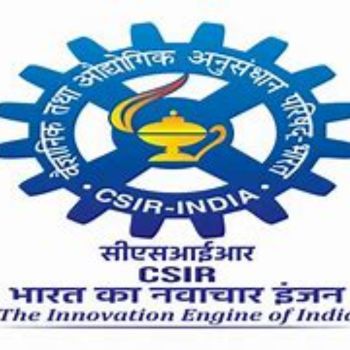Ph.D Business Economics is a rigorous 3-5 year doctoral program that equips candidates with advanced economic theory, quantitative methods, and research skills. They acquire the skills of econometrics, policy analysis, and financial modelling, which are based on real-life markets and regulatory issues. The focus on original research in the program provides a reason why graduates of engineering are enrolled in the program to enhance their analytical skills.
The eligibility is to have a master's degree in economics, business economics, finance or any such related field with a minimum aggregate of 55% marks (50 % in reserved categories). The candidates must also have valid UGC-NET/JRF, CSIR-NET, GATE (Economics) or institute-level Research Entrance Tests. An interview and a written examination follow the short listing, whereby the applicants are required to hand in a proposal for the research they undertake.
Depending on the institution, annual fees are INR 28,000 to INR 2,50,000. The best schools that do this program include University of Delhi, Banaras Hindu University, Sharda University and others.
Successful graduates can work in positions like Assistant Professor, Policy Analyst, Economic Consultant, Senior Researcher in banks or think tanks. These jobs utilise the doctorate-level skills to make an impact on academia, government and business strategy. They can earn an average salary of INR 8-15 LPA.
Table of Contents
- Ph.D Business Economics Course Highlights
- What Is a Ph.D Business Economics?
- Why Study Ph.D Business Economics?
- Who Should Study Ph.D Business Economics?
- Ph.D Business Economics Eligibility Criteria
- Ph.D Business Economics Entrance Exams 2025
- Ph.D Business Economics Best Colleges in India
- Ph.D Business Economics Admission Process 2025.
- Ph.D Business Economics Syllabus
- Ph.D Business Economics Job Opportunities in India
- Ph.D Business Economics FAQs
Ph.D Business Economics Course Highlights
They key highlights about Ph.D Business Economics course is given below:
What Is a Ph.D Business Economics?
A Ph.D Business Economics is the highest academic qualification awarded for original research at the intersection of economic theory and business practice. The Doctor of Philosophy students proceeded through further preparation in microeconomics, macroeconomics, econometrics, and quantitative methods, then developed a research proposal under the guidance of the expert staff.
The programme promotes the inculcation of self-inquiry into the study of issues that deal with the economy in a business-like market structure, policies, and finances, and ends with a written dissertation study, adding value to both the learning field and the industry. The graduates come out prepared to work as professors in universities, policy analysts, economic consultants, and senior researchers in government and corporate companies.
Why Study Ph.D Business Economics?
Embarking on a Ph.D Business Economics deepens your expertise at the nexus of theory and practice. It develops extreme study, analytical, and quantitative expertise necessary in high-impact jobs. Few reasons to pursue this degree are:
- High-level Research Skills: Learn the art of econometric work, quantitative analysis, original dissertation research, and aim to become a thought leader in economic research.
- Influencing Public Policy: Participate in the targeting of evidence-based policymaking in government and international organizations and affect economic and business policies.
- Possible Career Pathways: Eligibility for faculty jobs at universities and business schools, where they will be teaching and mentoring future economists and managers.
- Leadership in Industry: Be eligible to work in top management of consulting firms, financial institutions, and multinational organizations where a sound understanding of the economy determines overall strategic directions.
Who Should Study Ph.D Business Economics?
Pursuing a Ph.D Business Economics demands strong analytical skills, research aptitude, and a passion for economic inquiry. The perfect candidates for this course are:
- Master's degree graduates in Economics or a Related Subject: Persons with a master's degree in economics, finance, statistics, or business with good grades and mathematical training.
- Research-Oriented Professionals: Applicants who want to pursue high-impact research work in think tanks, government organizations, or international agencies in areas of policy, market, and financial regulation studies.
- Long-Term Industry Leaders: Management trained to offer thorough economic perspectives that can be used in strategic decision-making of multinational companies or as an economic consultant.
- Policy Advocates and Economists: People interested in developing government policy using evidence collected in central banks, ministries, or NGOs.
Ph.D Business Economics Eligibility Criteria
Embarking on a Ph.D Business Economics requires strong academic credentials and research aptitude. The applicants should qualify according to certain educational and examination rubrics. Further screening is done by review of proposals and interviews with shortlisted applicants.
- Academic Qualification: Master's degree in Business Economics, Economics, or related subject from a recognized college and University with minimum 55% aggregate marks (50% in case of SC/ST).
- Other Qualification: Four-year bachelor level (one year research) degree in Economics or equivalent with an aggregate of 55% plus a valid score in UGC-NET/JRF/GATE.
- Entrance Examination: Pass in a national or university-level test, e.g., UGC-NET/CSIR-NET/JRF, GATE Economics, or institute-admission research entrance tests (RET).
- Research Proposal: A detailed research proposal presenting objectives, methodology, and anticipated contributions.
- No Age Restriction: No age limit is prescribed to take admission into the Ph.D program.
Ph.D Business Economics Entrance Exams 2025
Multiple entrance examinations facilitate Ph.D Business Economics admissions nationwide. These exams assess candidates' research aptitude comprehensively. The details of the entrance exam are given below:
Ph.D Business Economics Best Colleges in India
Leading institutions across India offer exceptional doctoral programs in business economics and related fields. These universities provide comprehensive research opportunities and distinguished faculty guidance. Admission processes vary by institution, with specific eligibility requirements.
Also read about Ph.D Finance & Accounts
Ph.D Business Economics Admission Process 2025.
The admission process to enroll into a Ph.D course is almost the same in all colleges. For reference, the admission process at Delhi University is given below:
Step 1: Register online on the University of Delhi’s Ph.D. admission portal and fill out the application form. Along with the application, submit a 1500-word synopsis of your proposed research topic.
Step 2: Appear for the entrance exam conducted by the National Testing Agency (NTA), which is based on the CUET (Ph.D.) pattern. The entrance exam tests research aptitude and domain knowledge, and candidates must score at least 50% (with relaxation to 45% for reserved categories) to qualify.
Step 3: Based on entrance exam results, a shortlist of candidates is announced.
Step 4: Shortlisted candidates then appear for a second-stage assessment consisting of a written test and an oral interview focused on research aptitude and subject expertise in Business Economics. The synopsis submitted earlier is also evaluated during this stage.
Required Documents:
- Master’s degree certificate and transcripts
- Category certificate (if applicable)
- NET/JRF/GATE scorecard or DUET admit card
- Research proposal (1,500–2,000 words)
- Passport-size photograph & signature
Ph.D Business Economics Syllabus
The Ph.D Business Economics curriculum comprises a coursework sequence followed by focused research phases. The core topic covered at Presidency University is given below:
Read about Ph.D Operation Management
Ph.D Business Economics Job Opportunities in India
Embarking on a Ph.D Business Economics unlocks diverse high-impact career paths across academia, government, consulting, and industry. Some of the job roles available for them are given below:
Ph.D Business Economics FAQs
What funding and fellowship opportunities are available for a Ph.D? Business Economics candidates?
UGC-JRF and CSIR-JRF are offered by the universities and vary between INR 25,000 and INR 42,000 per month. Other scholarships can be provided within research initiatives, foreign scholarships (e.g., Commonwealth, Fulbright), and industry-sponsored assistantships.
Can candidates pursue a part-time or external Ph.D Business Economics?
Many institutions have part-time registrations or what is called the external registrations, and under this arrangement, the professional carries out the research as they practice. The eligibility is usually in the form of minimum credits of on-campus coursework and review by the advisory committee at certain intervals.
What is the procedure for selecting a Ph.D supervisor in Business Economics?
Assess faculty research interests, recent (and current) publications, and grant portfolios. Go to departmental seminars, talk to current doctoral students, and discuss your suggested topic with the supervisor regarding his or her expertise and resources.
Are publications required during the Ph.D Business Economics?
Several programs require a minimum of one article (or paper) accepted in a peer-reviewed journal publication or one presentation at a conference prior to defending the dissertation. Publication at an early age shows the ability to research and enhance post-doctoral and academic employment applications.
Is multidisciplinary research promoted in Business Economics doctorate studies?
Yes. It is common that candidates incorporate finance, data science, public policy, or behavioral economics in their dissertations. The interdisciplinary projects could get extra funding and inter-departmental mentors.
What opportunities for international cooperation and communications are there?
Elite institutions enable visiting researcher programs, co-supervision with foreign universities, and conference travel, which is funded. Such platforms as Erasmus Mundus, DAAD, and university MoUs facilitate semester exchange and workshops.











